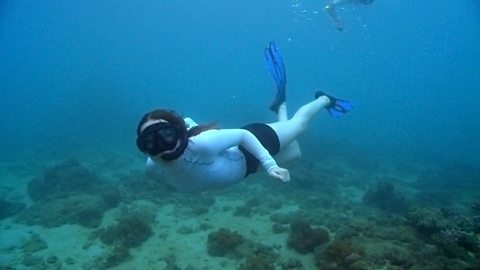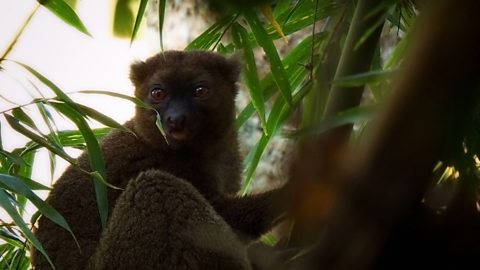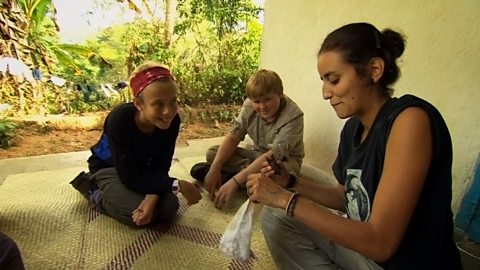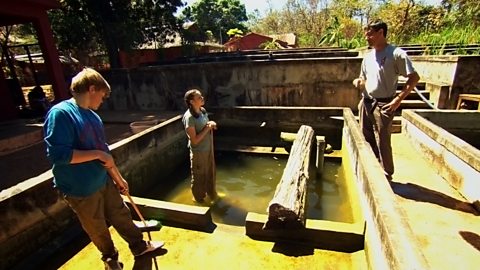The children consider whether Madagascar would be better without tourism.
We then meet local people who sell souvenirs that help bring money into the local economy and create jobs for local people.
The children work alongside local people to make whale souvenirs and think about the link between economy and conservation.
Eight children from the UK visit Madagascar to see what life is like there for people and animals.
Their time is spent visiting exotic tourist locations where people are allowed to get up close to the animals.
This includes a popular sightseeing boat trip to watch humpback whales and a discussion about the effects of noise pollution on the whales.
This clip is from the series Deadly Dilemmas.
Teacher Notes
Could be used to start a discussion for and against tourism in Madagascar.
Students could be encouraged to discuss wildlife regulations that govern tourism.
How are animals by tourism? What is the consequence of increasing numbers of tourists?
In groups, children could agree a set of wildlife regulations that tourists should abide by.
Students can be asked to debate the impact of tourism on wildlife and the pros and cons of tourism in general.
Are there any positives to tourism in Madagascar? Can the economy and conservation support each other?
In pairs, students can work to summarise different sides of the argument.
As a further activity, the class can be divided into groups to produce a TV advert (in storyboard form or as a short film), radio jingle or poster to persuade people to visit Madagascar in a way that supports the local economy in their efforts to protect the whales.
Curriculum Notes
This clip will be relevant for teaching Geography at KS3 in England, Wales and Northern Ireland and 3rd and 4th Level in Scotland.
More from Deadly Dilemmas:
How fishing on the coral reef in Madagascar causes habitat destruction. video
Children in Madagascar consider if it is acceptable to allow people to feed their families by fishing on the reef even though it causes habitat destruction.

How deforestation in Madagascar is threatening animal habitats. video
Children are sent to Madagascar to investigate protecting lemur's natural habitats whilst allowing local people to farm, even if that causes deforestation.

The food dilemma in Madagascar. video
Eight children are sent to visit the exotic island of Madagascar to discover how people and animals are able to survive there together.

Protecting endangered species in Madagascar. video
The children learn that several species of animal may become extinct in their lifetimes and go in search of a Fusa but are unable to find one in the wild.
